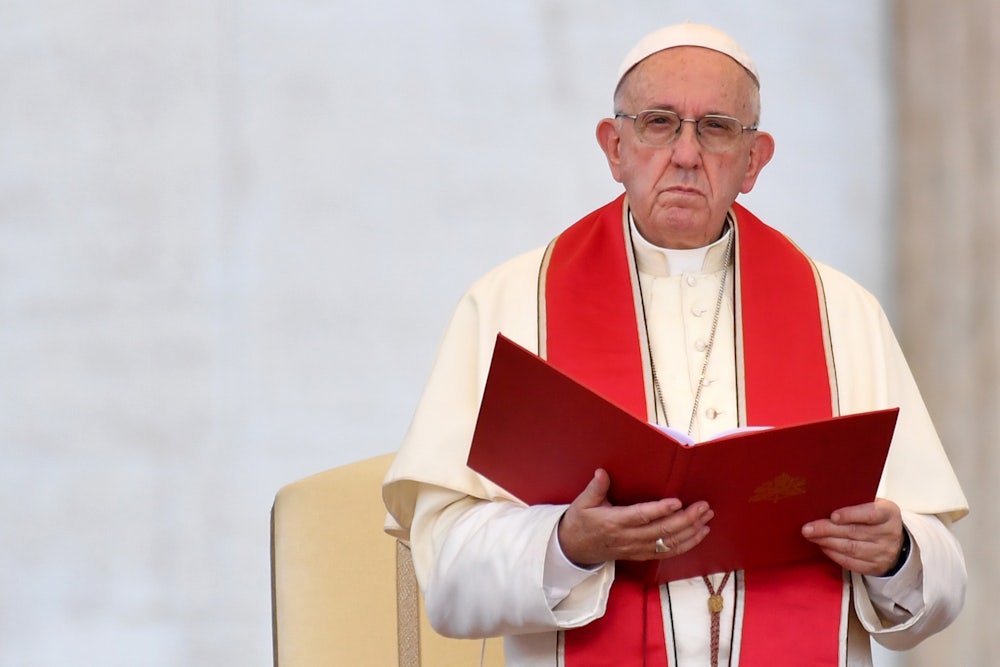The Vatican announced on Thursday that the pontiff revised the Catechism of the Catholic Church, the church’s written summarization of its teachings, to categorically oppose capital punishment in all circumstances. The revision is a significant shift in Catholic teachings, albeit one that largely takes existing doctrine on capital punishment to its logical conclusion.
The church’s previous articulation of its teachings indicated that the death penalty could be acceptable if “this is the only possible way of effectively defending human lives against the unjust aggressor.” The new version recognizes that executions are far from the only effective way to protect human life, citing “an increasing awareness that the dignity of the person is not lost even after the commission of very serious crimes,” as well as “more effective systems of detention” that protect safety and leave open “the possibility of redemption.”
Papal opposition to the death penalty itself is hardly novel. That opposition is most often directed at its use in the United States, which is one of the few remaining countries with a large Catholic population that still regularly executes prisoners. Francis called for the “global abolition” of capital punishment during his address to the U.S. Congress in 2015, echoing similar remarks made by Pope John Paul II throughout his 26-year papacy. In 1999, John Paul II successfully persuaded Missouri Governor Mel Carnahan, who was not a Catholic, to commute a death-row prisoner’s sentence during a papal visit to the state.
Thursday’s announcement also drew scorn from conservative American Catholics, some of who have grown increasingly critical of Francis’s leadership of the church. In a series of Twitter posts, National Review’s Michael Brendan Dougherty described the new death-penalty teaching as “religious Calvinball” and wrote that the church “is now a political party with a platform that changes with leadership.”
— Michael Brendan Dougherty (@michaelbd) August 2, 2018
